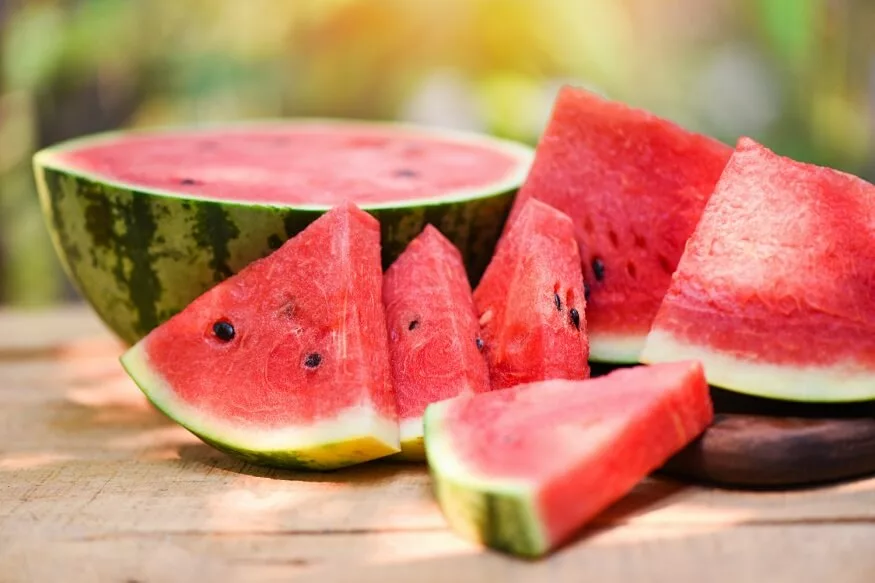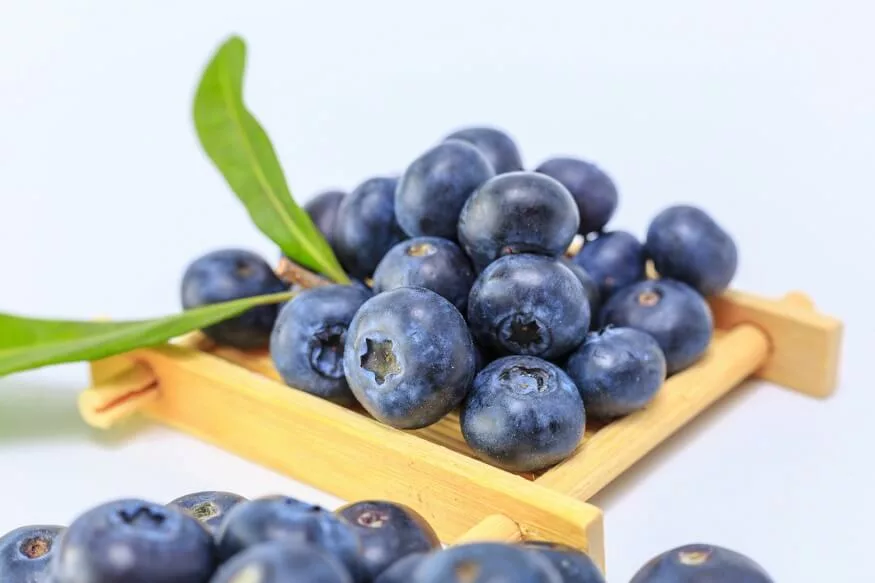Cultivated for thousands of years, watermelon (Citrullus lanatus) is a refreshing fruit distinguished by its dense water content and high nutrient profile.
This juicy fruit, originally from West Africa, is not only a summer favourite but also provides a bunch of health benefits. One such benefit is hydration, especially in children. Eating watermelon makes this easier and more enjoyable for kids.
This blog delves into how watermelon can help in keeping children well-hydrated.
Also read : Incorporating a rainbow diet for comprehensive nutrition
Nutrient profile of watermelon
The nutrient profile of watermelon is primarily composed of
- Water – 92 per cent of its total volume.
- Essential vitamins and minerals.
- Antioxidants
According to the United States Department of Agriculture (USDA), one cup of watermelon (approximately 154 grams) contains
- 46 calories
- less than a gram of fat
- 12 grams of carbohydrates
- 1 gram of protein.
- 21 percent of Vitamin C
- 18 percent of Vitamin A.
This composition makes watermelons a low-calorie and cholesterol-free food option, especially for those looking for weight-friendly fruits and to manage their cholesterol levels.
Watermelon contains lycopene, a carotenoid. Lycopene helps
- Lower cholesterol
- Blood pressure levels
- Reduce the risk of some types of cancer
- Against sunburns
Thus, including watermelon in children’s diets contributes to heart health from an early age and provides a natural sun blockade.
When it comes to other minerals, watermelon provides small amounts of magnesium and potassium, essential for maintaining a steady heartbeat and promoting bone health simultaneously.
The anthocyanin present in the red pigment of watermelons, known as cucurbitacin E, has anti-inflammatory and antioxidant effects.
Also read : 8 Healthiest Berries You Can Eat
Health benefits of watermelon for kids
Apart from its 92 percent water content, watermelon is packed with Vitamins A, C, B1, and B6, which support the overall health and well-being of children.
Vitamin A aids in:
- Maintaining healthy eyes
- Supporting cell growth
Vitamin C content aids in
- Strengthening the immune system
- Protects cells from harmful molecules known as free radicals.
The high water content in watermelon is beneficial in aiding hydration, essential for children, particularly during hot weather and physical activities. Adequate hydration helps
- Maintain body temperature
- Improve cognitive function
- Prevent constipation
Watermelon also provides dietary fibre that aids in digestion and prevents constipation, a common health issue among children.
The natural sugars present in watermelons provide a healthier alternative to processed sugary snacks or desserts. This can further promote dental health, as consuming too much sugar can lead to tooth decay.
Also read : Impact of Processed Foods: Understanding additives, preservatives, and their potential effects on children
Serve the watermelon
Watermelon is consumable in different forms, and children are particularly fond of this delightful fruit. Serving watermelon innovatively can add variety and interest to child nutrition. Below are five engaging ways to present watermelon to kids.
1) Use fun shapes
By using cookie cutters, watermelon slices can be made into stars, hearts, and even animals. This inspires children’s creativity and can make snack time an enjoyable learning experience. This technique offers a hands-on opportunity for kids to get involved in preparing their snacks, which can boost their interest in eating healthy.
2) Watermelon popsicles
This approach is especially popular during the hot summer months, as frozen treats are most appealing. Simply stick ice-cream sticks into chunks of watermelon and leave them to freeze for a couple of hours. This enhances the watermelon’s natural sweetness and creates a new, exciting texture for kids to explore.
3) Fruit salad
Combine with other fruits to make a refreshing fruit salad. This type of presentation is colourful, making it visually appealing to children. Mixing different fruits diversifies the range of nutrients your kids consume and can be a gateway to introducing other healthy fruits into their diet.
4) Smoothies
Smoothies are a brilliant way to consume fruits, including watermelon. A blend of watermelon, strawberries, and a little honey can create a delicious and nutritious drink that children will adore. Be sure to remove seeds before blending to ensure a smooth, drinkable texture.
5) Topping on yoghurt
This harmonises the creaminess of the yoghurt with the juicy, crunchiness of the watermelon. In addition to the taste, this combination introduces different textures, which is important for children’s sensory development.
Despite the numerous benefits, parents should be mindful of potential choking hazards, especially for younger children. It is best to serve watermelon in small, manageable pieces to avoid any risks.
The key is to make watermelon appealing in its presentation, taste, and texture, thereby allowing children to enjoy and appreciate food variety. Watermelon packs in a considerable amount of essential nutrients, providing beneficial vitamins, minerals, and plant compounds. The powerful combination of hydration and nutrition that watermelon offers makes it an excellent fruit choice for children.
Not only is it enjoyable to eat, but it also supports the overall growth and development of children, and contributes to hydration, eye health, immune system support, heart health, and vitamin delivery. Providing your child with a serving of watermelon can ensure they receive a boost of nutrients, all while enjoying a sweet, refreshing treat.
Also read : Teaching Kids About Citrus Fruits and Vitamin C
At EuroSchool, we include watermelon in our school meals, serving it as a refreshing snack, in fruit salads, and even in desserts. This helps students develop healthy eating habits and promotes their overall well-being.
Disclaimer:
The information provided on this website is not a substitute for professional medical advice. EuroSchool encourages you to consult with a qualified healthcare professional for any health concerns you may have. The information on this website is not intended to diagnose, treat, cure, or preventanydisease.










